


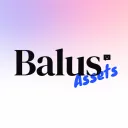


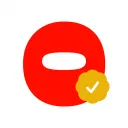
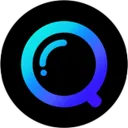
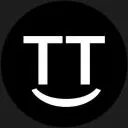


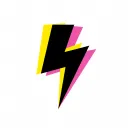






















TON-based social platforms are not just theoretical concepts—they are actively functioning and gaining traction. From messaging to content sharing, these ecosystems allow users to engage without handing over their data to centralized entities. With Telegram’s close connection to the TON ecosystem, the fusion of messaging and blockchain-powered services has never been more seamless. New users can explore these platforms with minimal friction, while developers continue to expand their capabilities through open-source innovation.
The TON Blockchain, originally developed by Telegram and now maintained by the open-source community, is a high-performance, scalable layer-1 blockchain. It supports fast transaction speeds and low fees, making it ideal for building real-time decentralized applications, including social networking platforms.
TON’s architecture is unique because it integrates with Telegram’s existing infrastructure, allowing apps to reach hundreds of millions of users instantly. This close relationship creates fertile ground for the development of tools like crypto wallets, NFT marketplaces, and decentralized social networks directly inside messaging apps.Developers benefit from a ready-made user base, while users enjoy smooth access to Web3 services without switching platforms. The result is an ecosystem that encourages experimentation, rapid adoption, and continuous innovation.
Decentralized social media platforms eliminate the need for a central authority to manage and control user data, content moderation, or monetization policies. Instead, these platforms rely on blockchain technology, smart contracts, and user consensus to operate transparently and equitably.
Unlike conventional social media platforms, users on decentralized alternatives retain ownership of their data and digital identities. This means censorship resistance, stronger data protection, and often, built-in monetization tools such as token rewards for engagement or content creation within the crypto social network ecosystem.They also promote algorithmic transparency, allowing users to understand and even influence how their content is distributed. As a result, communities grow more organically, free from manipulation by opaque corporate algorithms.

Using the TON network for social networking introduces several significant advantages. First, user data is stored in a distributed manner, reducing the risk of large-scale data breaches and increasing personal privacy. Users are not at the mercy of opaque algorithms or arbitrary content bans.
Second, integration with Telegram’s massive user base and existing communication framework makes onboarding to blockchain-based social platforms easier. People already engaged in crypto telegram groups can naturally migrate into social experiences powered by the same infrastructure.
Communities benefit from transparent governance models, and user engagement is rewarded directly through token-based mechanisms.These features collectively create a more trustworthy and user-centric environment for online interaction. As more individuals recognize these benefits, the adoption of TON-powered social networks is expected to accelerate rapidly.
A growing number of decentralized social networks are emerging within the TON ecosystem. One standout example is Fragment, a platform that blends messaging, content distribution, and identity verification through blockchain. It offers a hybrid of traditional social media features and decentralized functionality.
Another project gaining momentum is TON Society, a blockchain-native community hub that rewards contributions and fosters collaboration. This decentralized initiative is already popular among members of various crypto telegram groups links, drawing attention to TON’s capabilities in redefining digital communities.
These platforms showcase the potential of combining user empowerment with cutting-edge technology. Their growing adoption signals a shift toward communities that prioritize transparency, privacy, and shared ownership over centralized control.
Joining these new decentralized ecosystems is straightforward. Start by setting up a TON wallet, such as Tonkeeper or Wallet in Telegram, to store your tokens and interact with dApps. This wallet acts as your digital passport to all social applications built on the TON network.
Next, explore various TON-based apps via Telegram bots or websites that list decentralized tools. If you’re already part of crypto groups on Telegram, chances are you’ve encountered projects discussing or promoting TON-powered platforms. Engage with these communities to discover where to start.These early interactions can help you learn the dynamics of decentralized apps while connecting with like-minded users. Over time, you’ll gain confidence navigating the TON ecosystem and participating more actively in its evolving social landscape.

Several exciting trends are shaping the next generation of decentralized social networking. One is the integration of AI for content curation and moderation, done transparently through smart contracts rather than corporate black boxes. Another is the rise of token-based governance, where users vote on platform rules and features.
Additionally, as free crypto telegram groups grow in size and scope, they increasingly become incubators for new Web3 ideas. These communities are vital in testing, refining, and spreading awareness of innovative TON-based social apps across the broader crypto space.These grassroots-driven networks not only foster user-driven innovation but also accelerate adoption through organic trust. As a result, they play a crucial role in shaping a more open, democratic digital future.
Read also:
TON-based social networks are redefining how users connect by merging privacy, decentralization, and crypto-native tools into one experience. Unlike traditional platforms, these networks are often wallet-based, meaning your identity is tied to your on-chain activity, not your email or phone number. This enables seamless tipping, NFT trading, and DAO voting—all directly within the app.
Many of these social platforms run on smart contracts, ensuring censorship resistance and user-owned data. They also integrate with TON’s broader ecosystem, allowing users to interact with bots, games, and marketplaces in a unified interface. As a result, users can participate in meaningful digital communities while maintaining control over their identity and assets.
The user experience in telegram crypto groups continues to improve with the adoption of intuitive design and cross-platform support. Developers are implementing token economies, where users can earn and spend assets for posting, moderating, or curating content. With every update, these platforms move closer to truly user-owned, self-sustaining digital societies.
Decentralized platforms differ from traditional social media by removing the centralized authority that controls user content, algorithms, and monetization. Instead, governance is shared, and users retain control of their personal data and online identities. Traditional platforms profit from user data, whereas decentralized ones often share value creation among users.
This shift empowers users to participate more meaningfully, with features like token rewards and content ownership driving the appeal of telegram crypto groups. These communities are often self-moderated and rely on consensus to make decisions about rules and content curation. Many of them also collaborate on early-stage projects, offering a direct line between developers and real users.
Yes, in most cases, you will need a TON wallet to access and use decentralized apps within the TON ecosystem. The wallet enables secure login, content interaction, and transactions such as tipping or staking.
With options like Tonkeeper or the native Telegram wallet, users in crypto telegram groups can easily onboard and start exploring TON social platforms. These tools act as gateways to the decentralized world.Setting up a TON wallet is typically straightforward, with user-friendly interfaces designed to simplify the onboarding process for newcomers. Once established, the wallet not only secures your digital identity but also unlocks a wide range of decentralized services and features within the TON ecosystem.
While no system can guarantee 100% privacy, decentralized platforms offer a much higher degree of data protection. Messages and interactions are often end-to-end encrypted and stored across distributed networks. Unlike centralized servers that can be hacked or misused, data in a TON network-based crypto social network is controlled by the user, not the platform.
This makes unauthorized access or censorship significantly harder. In many cases, even developers of the application cannot retrieve or manipulate user content. Users can also link multiple wallets to manage identity layers, adding an extra layer of anonymity.
Fragment and TON Society are two prominent examples. Fragment focuses on secure communication and NFT-based identity, while TON Society acts as a community reward and collaboration platform. Both illustrate how social networking can evolve with blockchain support.
In addition, platforms promoted within telegram crypto groups often feature early-stage social dApps, offering sneak peeks into the evolving TON ecosystem.
These discussions help new users find promising decentralized services.These innovative projects highlight the practical benefits of decentralization, such as enhanced privacy and community-driven governance. As more developers build on TON, the ecosystem continues to expand, offering users diverse and robust social experiences beyond traditional platforms.
Yes, monetization is a core feature of many decentralized platforms. Content creators can earn tokens based on engagement, tipping, or participation in DAO governance. This model provides fairer compensation compared to ad-driven Web2 networks.
If you’re part of crypto telegram groups, you've likely encountered creators who share exclusive content through TON dApps, supported by micro-payments or NFTs. This demonstrates the power of decentralized ownership in driving creator-first ecosystems.Such monetization frameworks encourage creators to build genuine communities rather than chasing clicks or ad revenue. By directly rewarding value and participation, these platforms foster sustainable growth and empower content producers to retain control over their work.